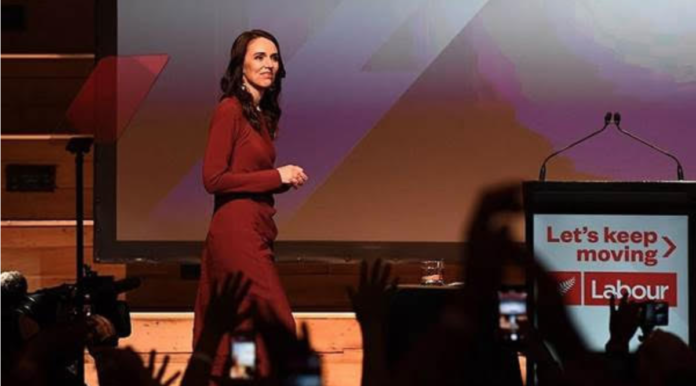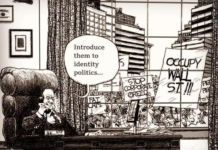WHAT ARE YOUR OPTIONS when half the country has just voted for you? How should you respond to such a resounding vote of confidence? Jacinda Ardern has undoubtedly been giving this question considerable thought for several weeks. I say “weeks” because her party’s pollsters and their focus-group moderators have been making it clear to her for months that a Labour win of historic proportions was on the cards. From the tone and content of her gracious Saturday night victory speech, it soon became clear that, from the options on offer, Jacinda had already made her choice. She would lead a government “for all New Zealanders”.
It’s a promise that works as well for those on the bottom of the socio-economic heap as it does for those at the top. Indeed, it will be interpreted by both groups as applying particularly to themselves. For beneficiaries, the unemployed, and the working poor struggling to pay the rent; Jacinda’s words will be taken to mean that their needs will not be forgotten. For the rich and the very-rich, the Prime Minister’s speech will have brought reassurance that their wealth was safe. For the rest of us, it just sounded right: what sort of Prime Minister would set out to govern only for her supporters?
Part of the reason for Labour’s landslide win on Saturday, is how easy the National Party leader, Judith Collins, and her colleagues, made it to answer that question. Throughout the campaign, it was made abundantly clear that National’s policies were intended to advantage its friends, allies and supporters – and virtually no one else. Time and again, when questioned about the huge disparity between the tax relief being offered to those in full-time employment on generous salaries, and those working two or three minimum-wage jobs, National’s finance spokesperson, Paul Goldsmith, talked of hard-working Kiwis on the average wage – as if everyone else were shiftless wastrels who deserved nothing better.
It’s precisely this dog-eat-dog attitude that New Zealand turned its face from in this election. If Covid taught New Zealanders just one thing, it’s that selfishness is a potentially deadly affliction. We learned how dangerous those who insist that “protecting the economy” be accorded the highest priority – ahead of the lives of elderly and vulnerable New Zealanders – truly are. We also learned the virtues of collectivism: rediscovering the simple truth that the well-being of each of us, and the well-being of all of us, are goals that can only be achieved by working together. It was her steadfastness in advancing this simple proposition that made Jacinda unbeatable.
That is not a rhetorical flourish. From the moment New Zealand went into Level 4 – Lockdown – National found itself shut out of the election conversation. Individuals close to the party report campaign operatives telling them that the phone was well-and-truly off-the-hook. Focus-group moderators quizzed their subjects relentlessly, desperate to find the words and phrases that would trigger former National voters into returning the party’s calls. But, it was no good, nobody wanted to talk to politicians who thought it was a good idea to criticise, nit-pick, or in any other way undermine the nation’s determination to “stamp out the virus”.
National’s desperation was etched for all to see on the increasingly distraught features of Judith Collins. It was reinforced by her frenetic visits to the party’s rural and provincial seats. It was as if any thought of reaching out beyond National’s electoral base no longer made the slightest sense. It had become, in the metaphor so beloved by political journalists, a simple matter of “saving the furniture”.
Except, it didn’t work. In every South Island electorate the Party Vote was won by Labour. Rangitata fell. East Coast fell. Wairarapa fell. New Plymouth and Wanganui fell. Unbelievably, Ilam – Gerry Brownlee’s leafy Christchurch redoubt, the bluest of National’s blue-ribbon seats – fell. The furniture was burning.
Labour has ceased to frighten National voters. The class enemy turns out to have a kind heart, a toothy smile, and a special knack with ginger-cake. Their own leader, sadly, looks more and more like a fruitcake.
Mickey Savage had performed the same trick back in the 1930s. My father liked to tell a story from his childhood about the old dairy farmer he often helped-out after school. The 1938 general election was fast approaching, and politics was on everybody’s lips. One evening, the hard-scrabble cow-cocky, perhaps aware that Dad’s father, the local GP, was a firm ally of the Labour Government, observed: “Well, Tony, it looks as though we’re going to have the socialists again!” As my father told the tale, the farmer did not say this with bitterness, but with a wink and a smile. A few days later, Labour romped back to power with 55.8 percent of the popular vote.
There are those on the Left who fear that Jacinda’s attachment to the centre will prevent her from doing what so urgently needs to be done in housing, welfare, child poverty, industrial relations and climate change. They argue that the only people she and her government will respond to are the owners of businesses large and small. My own feeling is, that Jacinda will do as much as we compel her to do. As much as – now that she need ask no other party’s permission – the mood of the electorate suggests she can get away with. And, given how incredibly skilled she has become at creating a mood, that could be quite a lot.
When confronted by urgent and indisputable need, Jacinda and Grant Robertson were willing to spend scores of billions of Reserve Bank-created dollars to keep the lights on. The Prime Minister is not afraid of breaking the rules of neoliberalism if that is what the situation clearly requires – and what the voters are urging her to do in numbers too great to be ignored. Far too many on the Left are unwilling to acknowledge that the only kind of socialism that endures is democratic-socialism. Or as Jacinda puts it: “Change that sticks.”
We must not be frightened of the Prime Minister’s pledge to govern for all New Zealanders. It is not a formula for centrist betrayal. It is just another way of saying that she will continue to look after “The Team of Five Million”? And hasn’t Jacinda already shown us how well she can do that?
Isn’t that why she won?






Chris Jacinda needs to now move on climate change or this is our new reality.
I say de-carbonise the transport fleet that is still umping more climate emissions every day since 1990 and remove the increasing truck freight and use rail or we will perish.
https://news.un.org/en/story/2020/10/1075142
UN News
‘Staggering’ rise in climate emergencies in last 20 years, new disaster research shows
OCHA/Danielle Parry
Extreme weather events are devastating many countries, including Fiji which was hit by a cyclone in 2016.
12 October 2020
Climate Change
The first 20 years of this century have seen a “staggering” rise in climate disasters, UN researchers said on Monday, while also maintaining that “almost all nations” have failed to prevent a “wave of death and illness” caused by the COVID-19 pandemic.
In an urgent call for countries to prepare better for all catastrophic events – from earthquakes and tsunamis to biological threats such as the new coronavirus – data from the UN Office on Disaster Risk Reduction (UNDRR) indicates that wealthy nations have done little to tackle the harmful emissions that are linked to climate threats which make up the bulk of disasters today.
Short odds
“Disaster management agencies have succeeded in saving many lives through improved preparedness and the dedication of staff and volunteers. But the odds continue to be stacked against them, in particular by industrial nations that are failing miserably on reducing greenhouse gas emissions,” said Mami Mizutori, UNDRR chief, and Special Representative of the Secretary-General for Disaster Risk Reduction.
According to the UNDRR report – produced with Belgium’s Centre for Research on the Epidemiology of Disasters at UCLouvain – there were 7,348 recorded disaster events worldwide, during the last two decades.
Approximately 1.23 million people died – approximately 60,000 per year – with more than four billion affected in total; many more than once.
These two decades of disaster also caused $2.97 trillion in losses to the global economy, with data also indicating that poorer nations experienced deaths rates more than four times higher than richer nations.
By comparison, the previous 20-year period (1980 to 1999) saw 4,212 reported disasters from natural hazards, with 1.19 million deaths, more than three billion people affected and economic losses totalling $ 1.63 trillion.
Climate danger spike
Although better recording and reporting of disasters may help explain some of the increase in the last two decades, researchers insisted that the significant rise in climate-related emergencies was the main reason for the spike, with floods accounting for more than 40 per cent of disasters – affecting 1.65 billion people – storms 28 per cent, earthquakes (eight per cent) and extreme temperatures (six per cent).
“This is clear evidence that in a world where the global average temperature in 2019 was 1.1 degrees Celsius above the pre-industrial period, the impacts are being felt in the increased frequency of extreme weather events including heatwaves, droughts, flooding, winter storms, hurricanes and wildfires,” UNDRR reported .
Despite the pledge made by the international community in Paris in 2015 to reduce global temperature rise to 1.5 degrees Celsius above pre-industrial levels, Ms. Mizutori added that it was “baffling” that nations were continuing knowingly “to sow the seeds of our own destruction, despite the science and evidence that we are turning our only home into an uninhabitable hell for millions of people”.
COVID-19 exposure
Turning to the COVID-19 pandemic, which has “laid bare many shortcomings in disaster risk management (despite) repeated warnings”, the UNDRR report recommended urgent action from Governments to better manage such overlapping disasters.
These hazards included known “risk drivers”, such as poverty, climate change, air pollution, population growth in dangerous locations, uncontrolled urbanization and the loss of biodiversity.
Chronic needs
By way of an example of chronic weather risks which should be the focus of better national preparedness measures, the agency pointed that shifting rainfall patterns pose a risk to the 70 per cent of global agriculture that relies on rain and the 1.3 billion people dependent on degrading agricultural land.
Despite the fact that extreme weather events have become so regular in last 20 years, only 93 countries have implemented disaster risk strategies at a national level ahead of the end-of-year deadline, Ms. Mizutori said.
“Disaster risk governance depends on political leadership above all, and delivery on the promises made when the Paris agreement and the Sendai Framework for Disaster Risk Reduction were adopted,” she said. “But the sad fact is that we are wilfully destructive. And that is the conclusion of this report; COVID-19 is but the latest proof that politicians and business leaders have yet to tune into the world around them.”
She added: “It really is all about governance if we want to deliver this planet from the scourge of poverty, further loss of species and biodiversity, the explosion of urban risk and the worst consequences of global warming”, in a joint statement with UCLouvain’s Professor Debarati Guha-Sapir.
Although the UNDRR report indicates that there has been some success in protecting vulnerable communities from isolated hazards, thanks to more effective early warning systems, disaster preparedness and response, projected global temperature rises could make these improvements “obsolete in many countries”, the agency warned.
Currently, the world is on course for a temperature increase of 3.2 degrees Celsius or more, unless industrialised nations can deliver reductions in greenhouse gas emissions of at least 7.2 per cent annually over the next 10 years in order to achieve the 1.5 degree target agreed in Paris.
There are only two issues, and for the past 20 years there have been only two issues:
1. How do we prevent positive feedbacks being triggered, and those positive feedbacks rendering the Earth uninhabitable for humans (and most other species) in a matter of decades?
2. How do we prevent mass starvation, uncontrollable crime and general mayhem associated with the collapse of oil-dependent systems, as we slide down the EROEI graph and the supply of oil goes into terminal decline?
Everything else is just noise.
Guess what! Neither of those real-world questions is even on the agenda, let alone being dealt with. Indeed, everything Jacinda has done since taking office has made those [energy and environment] predicaments a lot worse, both locally and globally.
The lowest sea ice cover ever recorded at this time of the year:
https://nsidc.org/arcticseaicenews/
The highest atmospheric CO2 ever recorded at this time of the year:
Daily CO2
Oct. 18, 2020: 411.24 ppm
Oct. 18, 2019: 408.9 ppm
Fossil Fuel Production Is Reaching Limits in a Strange Way
https://ourfiniteworld.com/2020/10/15/fossil-fuel-production-is-reaching-limits-in-a-strange-way/
Well as soon as I can afford a Ferrari I’m sure I’ll be one of the “all” Labour are governing for.
Like Mike Sean?
https://www.nzherald.co.nz/entertainment/mike-hosking-shows-off-hot-new-ride/XXXCRFX56UE2FM55NVDBT6XXBA/
Well I might be able to afford a wheel or hub cap Diane…..LOL A Tonka toy equivalent is more likely…..
I want a ute but priced out of that market and i would settle for a used one !!!
The Tonka will take GHGs to manufacture but not to run.
The Ferrari can be shoved so far up that its lost to daylight.
“Paul Goldsmith, talked of hard-working Kiwis on the average wage”
Even for a Nat he was being particularly disingenuous in his selection of which average he used to claim $64k pa. The Fact Checkers at RNZ https://www.rnz.co.nz/news/national/427213/national-overstates-benefit-of-nz-tax-cut-plan quickly put the lie to his claim of an average benefit of $3k pa = $60/wk. The most accurate median wage is $33k pa & the benefit $560 pa = $10/wk
A $50b House Building Construction program will convince me that Labour are worthy. Anything short of that will confirm that theyre shite still.
Well put Chris. Democratic socialism is indeed the winner. Not quite neoliberalism with a conscience but we’ll take the win.
Yes, we the people are responsible for making change happen. Change that benefits of the bottom 90% of the population never comes from the politicians and we should stop hoping that electing just the right person will make it happen.
With Jacinda we have someone who will listen but she needs to be able to tell the super-rich elites that the barbarians are at the gate and that she has no choice but to do what we want.
The barbarians ARE at the gate:
‘September 2020 was the warmest September in the NASA record that goes back to 1880. In the image, September 2020 temperatures are compared to 1951-1980.
Global warming is accelerating
Similarly, Copernicus reports that September 2020 global surface air temperature was the highest September temperature on record.
https://arctic-news.blogspot.com/2020/10/high-temperatures-october-2020.html
Comments are closed.